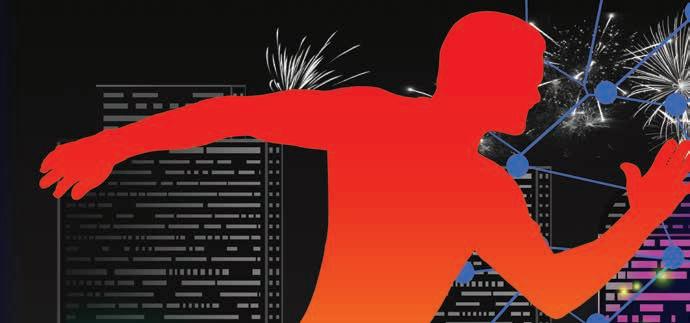
2 minute read
Future disruptions
data, automation and IoT Future Disrupted predictions:
The trends that are coming to you, whether you like it or not, according to report on the future business landscape
Advertisement
TECH services provider NTT Ltd has released its Future Disrupted: 2020 report outlining the trends likely to shape the business technology landscape.
It considered six key areas, based on insights of technology experts: disruptive technologies, cybersecurity, workplace, infrastructure, business, and tech services.
The company predicts that 2020 will see all the buzzwords of the past decade come together to create connected environments capable of running themselves. That means intelligent cities, workplaces and businesses — on a secure basis. Data, AI and secureby-design will be at the heart of this movement, empowering devices to talk to one another and act on that information without human intervention.
Smart cities and IoT will become the norm, NTT predicts, as they improve productivity, growth and innovation across entire regions.
Building fully
connected
environments
will be key
NTT brought together 40,000 people across 31 brands to serve 10,000 clients. Using insights gathered from this global client base, it looks at the way businesses should prepare for the next year. The company's CTO, Ettienne Reinecke, says 2020 will be a year of change. “We'll see complete end-to-end computing come to the fore,” he predicts, “bringing to life fully intelligent environments that are completely connected.
“We will see most cities and societies starting to follow in the footsteps of Las Vegas, which … shares data across the region, improving situational awareness through video and sound data.
“With IoT technology on a secure infrastructure, its created a safer environment to live in, improving living conditions and, ultimately, saving lives.
“Projects like these need a variety of different technology capabilities to come together in order to achieve great things, so building fully connected environments will be the key focus point next year.”
Technology is changing quickly — but this is the slowest pace of change we'll ever see, according to NTT. “We've never before had so much powerful technology at our disposal,” says Reinecke.
THE PREDICTIONS: 1. Digital twinning: With enough datapoints, it is possible to model behaviours and understand patterns – for example, the diet of someones biometric twin – and calculate the time before a health incident occurs. 2. Building trust. Now that AI has evolved, businesses
can move from being purely transactional to having a more relational engagement with customers, applying rules that bring empathy to the interaction. 3. “Phygital” spaces: The physical world blends with the digital take any physical space — a meeting room, office, shop — and plug in technologies to transform it into a virtual environment and create a range of experiences. 4. Smart buildings. IoT will automatically adjust temperatures according to the number of people in a space, or turn on


lighting at the right time of day — while becoming more sustainable. 5. Data wallets: Putting data in the hands of the person who owns it, and ensuring that nobody can access it without permission. When under threat, the data can be locked down.










